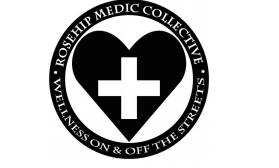
This Radical Medical Collective Ministers to Protesters
Almost a decade ago, a group of healthcare activists in Portland, Oregon, formed the Rosehip Medic Collective, with the original intent of providing emergency medical care to people attending progressive political events, protests and direct actions. As part of this work, they’ve offered intensive trainings––a 20-hour immersion in advanced first aid––so that people who either lack the resources to obtain medical attention or who feel unsafe in traditional medical settings might have access to basic information, advocacy, and support.

The collective’s members—many of them Jewish and most LGBTQ—include Emergency Medical Technicians, registered nurses, wilderness first-responders, herbalists, naturopaths, acupuncturists, and teachers. This diversity of experience has led them to a range of Portland events. Individual members also provide care to people living on the street, to IV drug users in harm-reduction settings, and in free clinics. And some Collective members were present at the 2017 Standing Rock encampment formed by North Dakota’s native community in opposition to the Dakota Access Pipeline.
Rosehip Medic Collective member Eva Irwin spoke to Eleanor J. Bader by phone in early May about the group’s work and evolution.
Eleanor J. Bader: Let’s start with some history. How, when, and why did the Collective form?
Eva Irwin: We basically coalesced as a Collective in the aftermath of the Republican and Democratic conventions of 2008. At both conventions, protesters met tremendous repression. The police violence served as a crucible for us as individuals.
From the beginning—we incorporated in 2008—we’ve included people with and without medical certifications and licenses. Early on, we were EMT heavy, and many of us had gone to wilderness first-responder trainings. Some of us knew a lot about acupuncture and herbs; others were experts in naturopathic medicine. A few of us had been street medics before, with an earlier incarnation of Rosehip called Portland Street Medics, so we came into the Collective with a variety of backgrounds.
The idea was that we wanted to do action/activist medicine. We understood that many communities have to create their own medical infrastructure, taking care of themselves, because of racism, sexism, homophobia, or transphobia. Many of us in the collective have not felt safe accessing conventional emergency medical services (EMS). This led us to do a research project on tried-and-existing alternatives to EMS. One group we profiled was Hatzolah—a global Jewish volunteer ambulance organization which basically recognized that specific communities with specific needs do not always get their needs met by the larger society. Hatzolah was a response to this, a community-created service to care for community members, broadly speaking.



